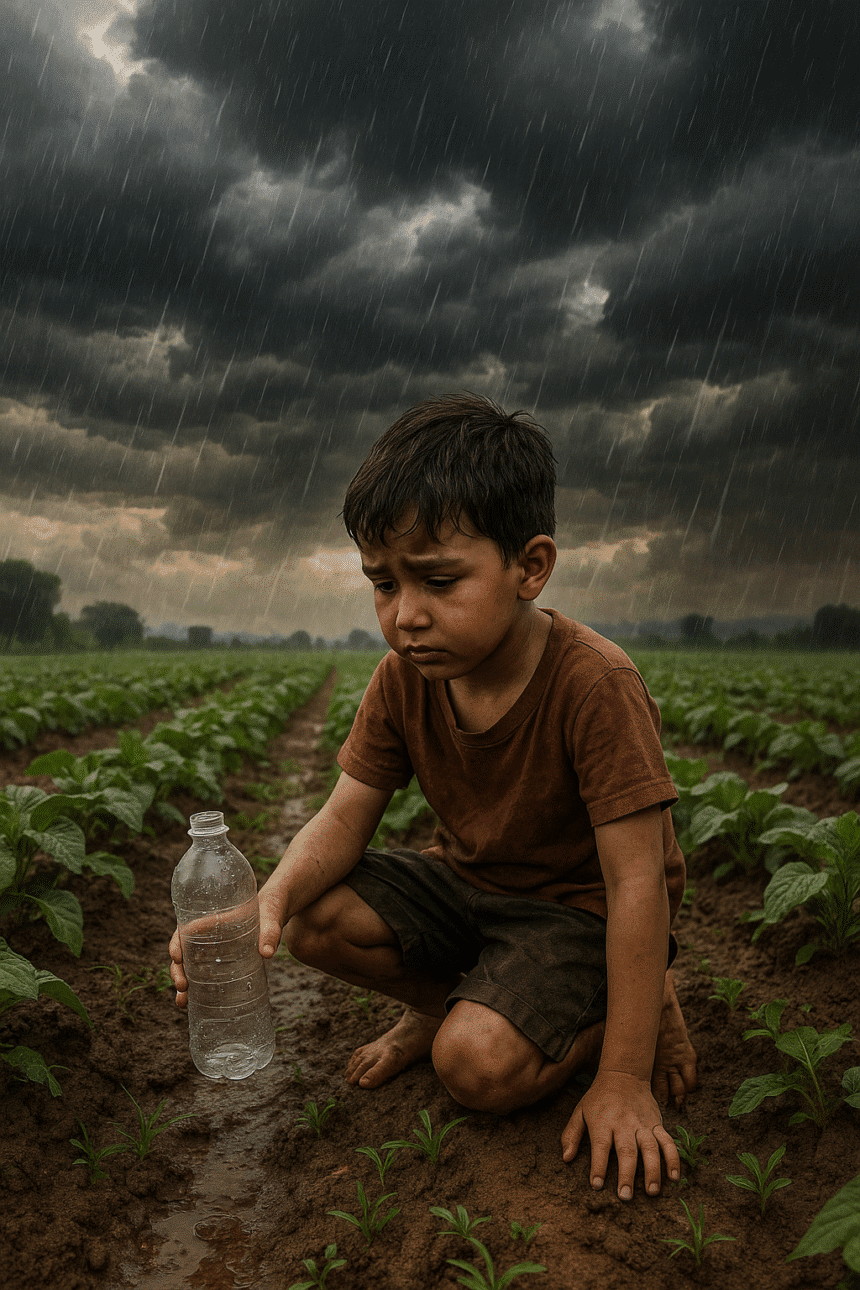A new study published in Earth’s Future raises an urgent alarm rising global temperatures could permanently alter the planet’s rainfall patterns, putting nearly 2 billion people at risk especially those living in equatorial regions that rely heavily on seasonal rain.
At the heart of this potential disruption is the intertropical convergence zone (ITCZ), a vital atmospheric belt that governs much of the Earth’s rainfall near the equator. A shift in the ITCZ’s position could trigger large-scale changes in regional precipitation, with far-reaching consequences for water access, agriculture, and energy production.
“This isn’t just speculation—it’s a serious possibility,” said Richard Allan, professor of climate science at the University of Reading. “Because the impacts on regional water availability could be enormous, this must be taken seriously.”
A Global Chain Reaction
The study’s most sobering finding is that 23% of the global population and more than 12% of the Earth’s land surface could face severe hydrological changes. Communities that rely on seasonal rainfall for farming, drinking water, and hydroelectric power would be especially vulnerable. In parallel, sensitive ecosystems like rainforests and savannas dependent on predictable moisture cycles could suffer irreversible damage.
The threat goes beyond water shortages. These disruptions could trigger mass migration, strain public health systems, destabilize energy supplies, and upend global food chains. Once set in motion, these changes are unlikely to reverse.
“This is very clear,” said co-author Steffen Steinert. “We must cut emissions as soon as possible.”
Urgency Over Certainty
Although the worst-case outcomes are not inevitable, scientists warn that the risks are too serious to ignore. The scenarios are described as “low probability but plausible,” meaning they may not be likely—but they’re real enough to demand urgent action.
The findings reinforce a growing body of research showing that Earth’s climate is nearing critical thresholds. Waiting for full certainty could result in irreversible outcomes by the time they’re fully visible.
The message from researchers is clear: reduce greenhouse gas emissions now, or risk pushing the planet into a permanently altered climate with cascading effects on billions of lives and ecosystems worldwide.














